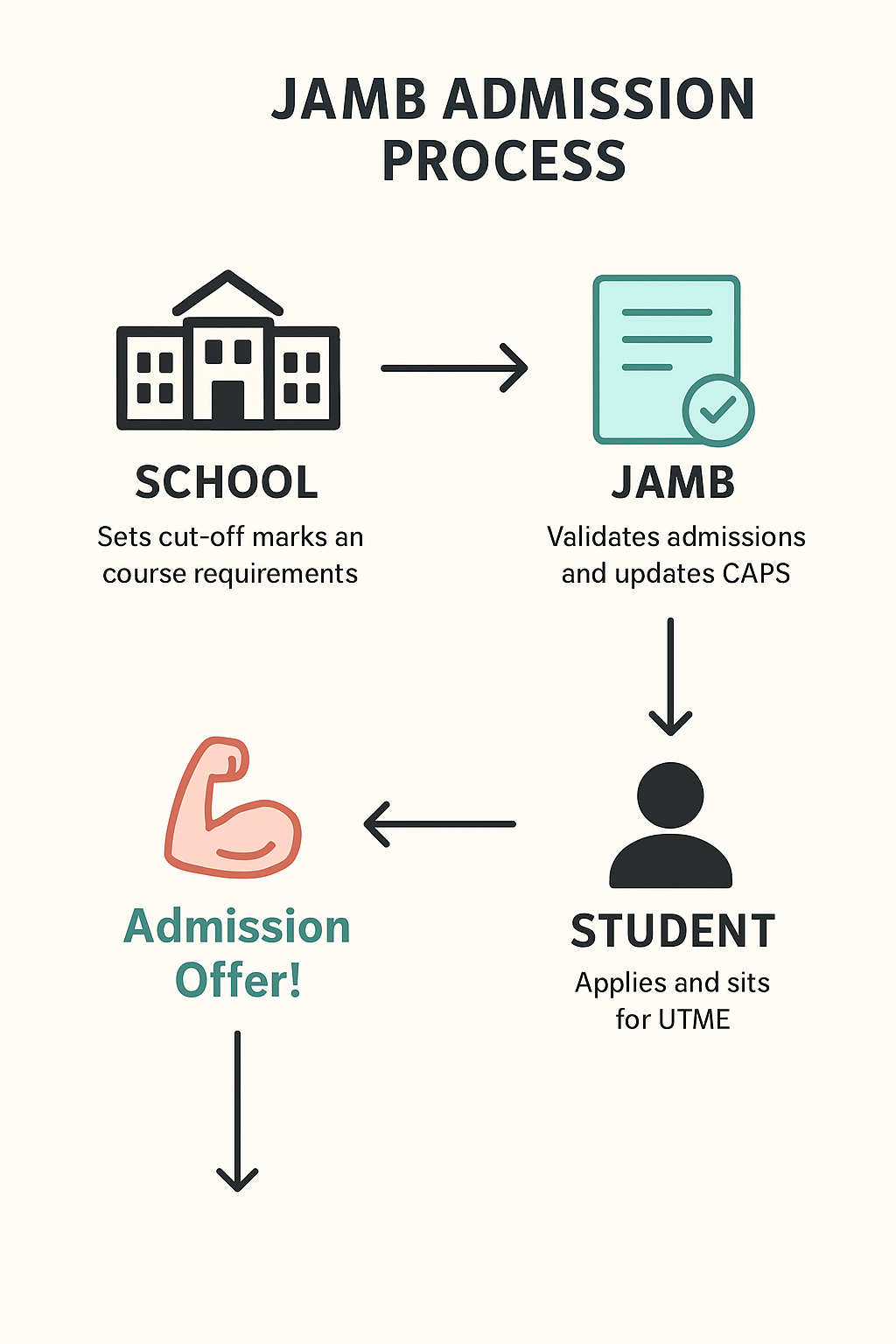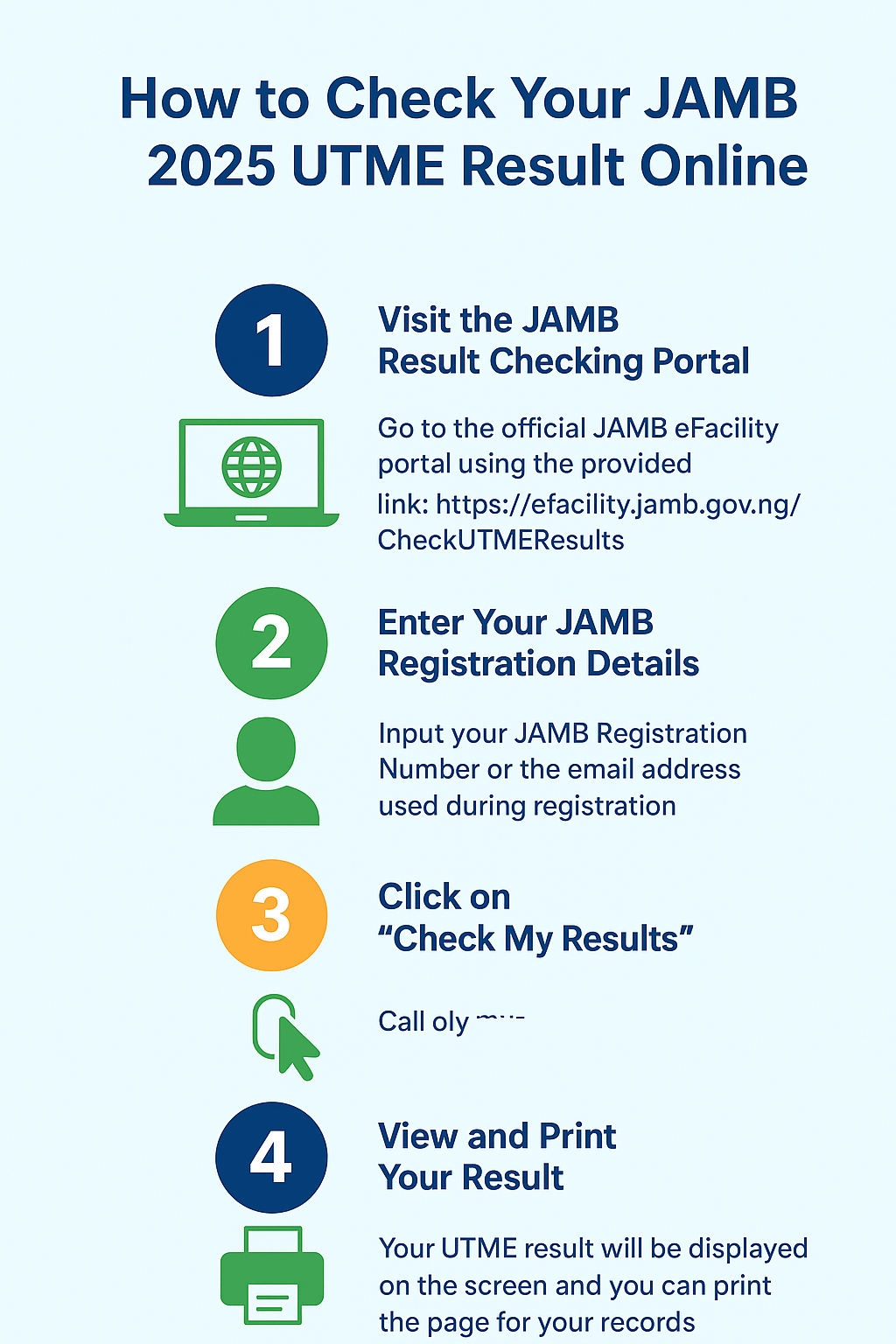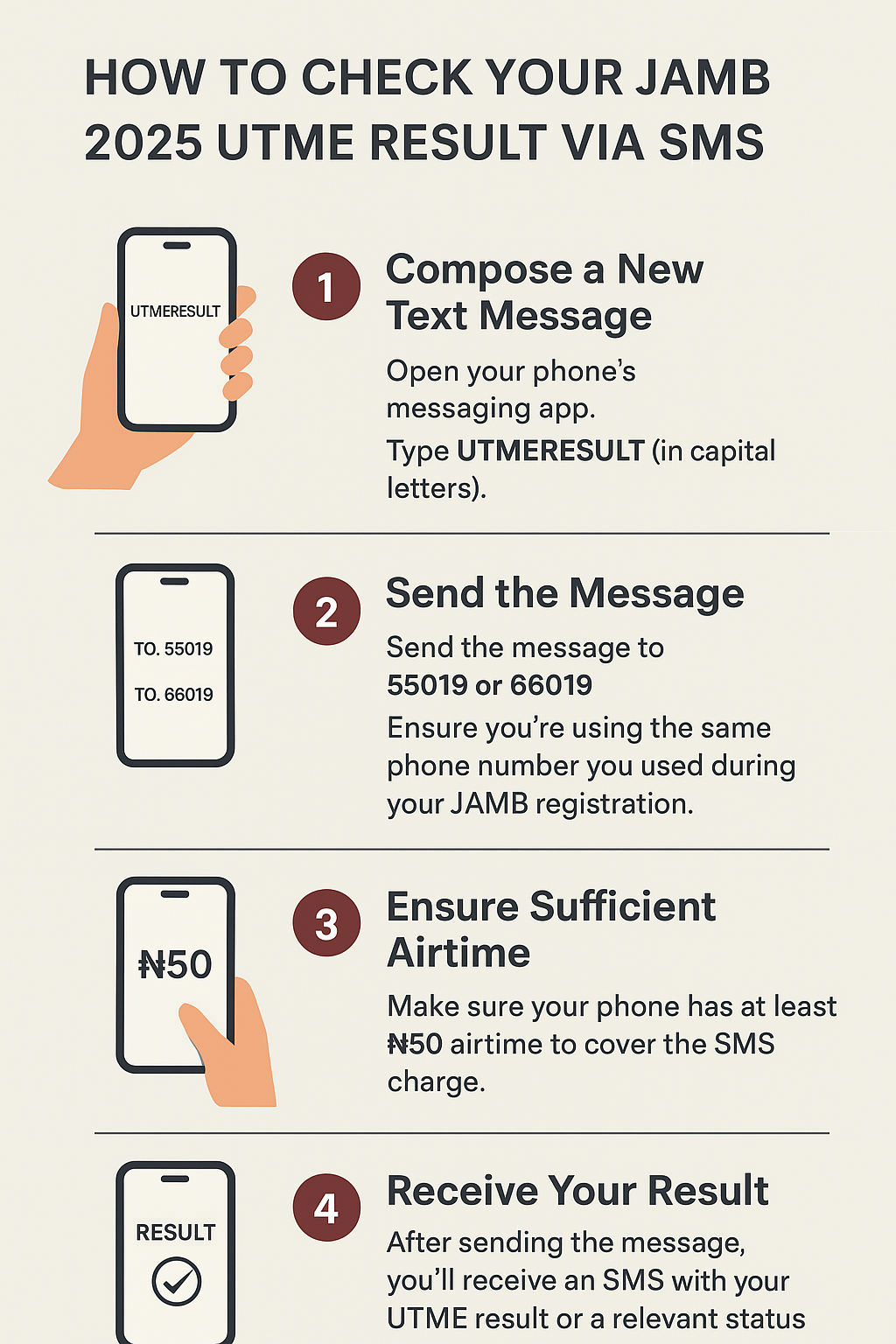In Nigeria’s tertiary education system, the Joint Admissions and Matriculation Board (JAMB) and individual schools work hand in hand to determine who gets admitted. Many students wonder: Can JAMB give admission without the school granting it first?
The short answer is No. Let’s break down why.
Contents
JAMB’s Role in Admission
JAMB is responsible for:
- Conducting the Unified Tertiary Matriculation Examination (UTME), which qualifies candidates for higher institutions.
- Ensuring that all admissions follow national standards and policies.
- Using the Central Admissions Processing System (CAPS) to confirm and update admission statuses.
👉 However, JAMB does not admit students on its own. It only validates recommendations from schools.
Institutions’ Role in Admission
Each university, polytechnic, or college of education:
- Sets its cut-off marks and course requirements.
- Conducts post-UTME screenings or other assessments.
- Shortlists candidates based on performance and eligibility.
- Sends the list of recommended students to JAMB for final approval.
This means the school makes the first decision before JAMB confirms it.
Step-by-Step Admission Process
- UTME & Application – Candidate sits for UTME and applies to their preferred school.
- School Screening – Institution conducts post-UTME or other tests.
- Recommendation – School compiles and submits the list of admitted candidates to JAMB.
- JAMB Verification – JAMB checks compliance with admission policies and updates CAPS.
Can JAMB Admit Without the School?
❌ No, JAMB cannot give you admission without your school first offering you admission.
- The school must select you based on its criteria.
- JAMB then validates the admission and uploads it on CAPS.
- Without institutional approval, JAMB cannot list you as admitted.
Key Takeaways for Students
- Always meet your school’s admission requirements first.
- Monitor your admission status regularly on JAMB CAPS.
- Don’t rely on JAMB alone—your school’s decision is final before JAMB confirms.
JAMB and schools work together in the admission process. Schools recommend, and JAMB confirms. To secure admission, focus on performing well in both UTME and post-UTME, and always follow your school’s admission guidelines.



